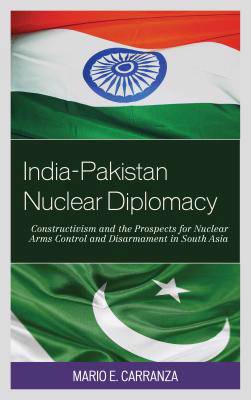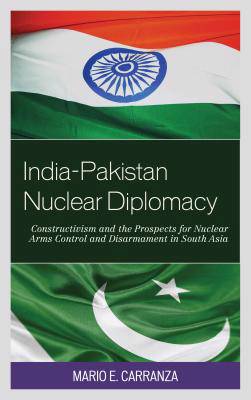
- Retrait gratuit dans votre magasin Club
- 7.000.000 titres dans notre catalogue
- Payer en toute sécurité
- Toujours un magasin près de chez vous
- Retrait gratuit dans votre magasin Club
- 7.000.0000 titres dans notre catalogue
- Payer en toute sécurité
- Toujours un magasin près de chez vous
India-Pakistan Nuclear Diplomacy
Constructivism and the Prospects for Nuclear Arms Control and Disarmament in South Asia
Mario E Carranza
196,95 €
+ 393 points
Description
Using a constructivist model, this study brings nuclear arms control and disarmament back into the debates on the future of Indo-Pakistani relations. Constructivism recognizes the independent impact of international norms, such as the Nuclear Non-Proliferation Norm, on India and Pakistan's nuclear behavior.
Spécifications
Parties prenantes
- Auteur(s) :
- Editeur:
Contenu
- Nombre de pages :
- 288
- Langue:
- Anglais
- Collection :
Caractéristiques
- EAN:
- 9781442245617
- Date de parution :
- 15-07-16
- Format:
- Livre relié
- Format numérique:
- Genaaid
- Dimensions :
- 155 mm x 231 mm
- Poids :
- 612 g

Les avis
Nous publions uniquement les avis qui respectent les conditions requises. Consultez nos conditions pour les avis.






